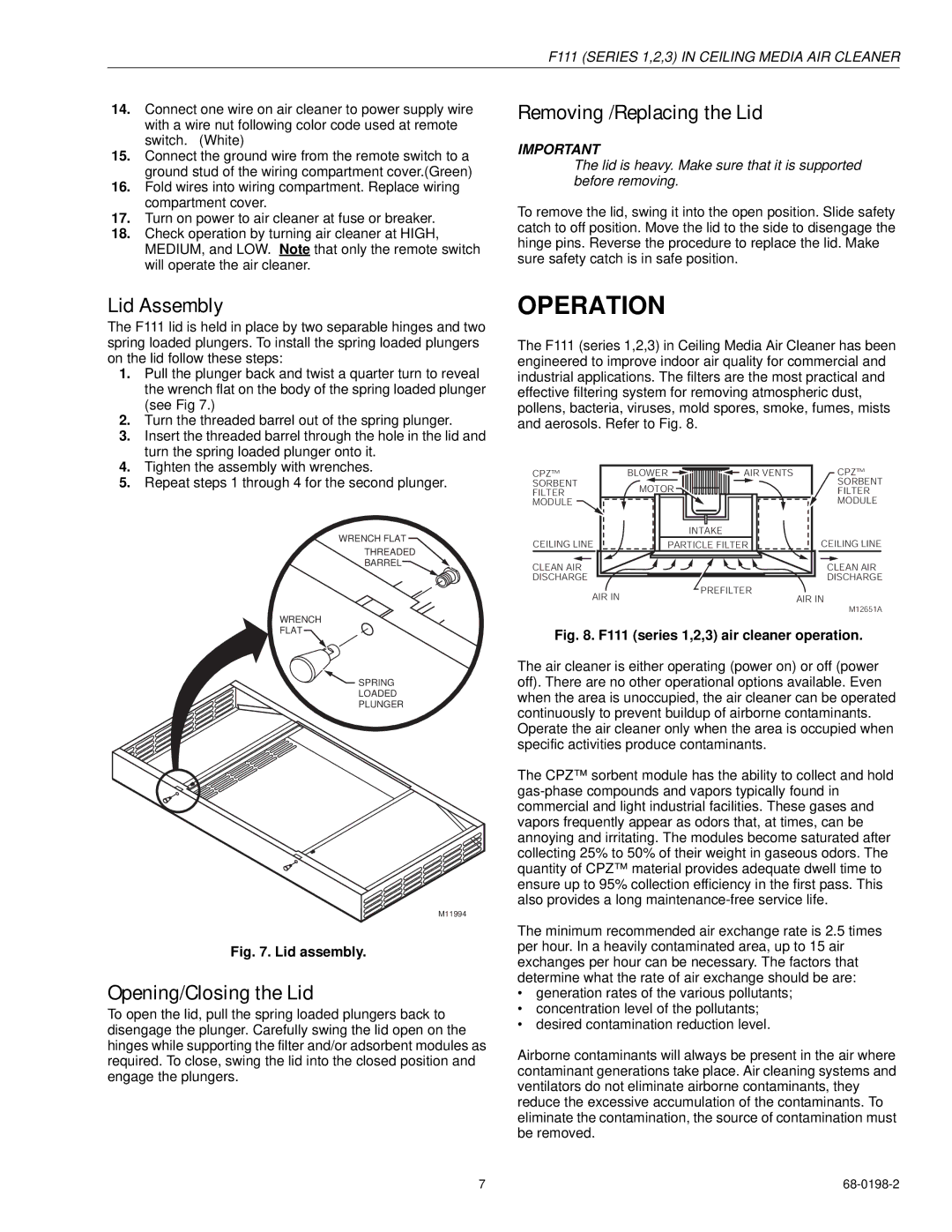F111 Series 3 specifications
The Honeywell F111 Series 3 is a notable aircraft in the realm of military aviation, primarily designed for ground attack and tactical strike missions. A derivative of the original F-111 Aardvark, the Series 3 variant exemplifies advanced engineering and technological innovations that enhance its combat capabilities.One of the standout features of the F111 Series 3 is its unique variable-sweep wing design, which provides exceptional versatility in various flight conditions. This design allows the wings to adjust their angle during flight, optimizing performance for both high-speed intercepts and low-level tactical missions. As a result, the F111 can operate effectively at a wide range of speeds and altitudes, giving it a tactical edge over its peers.
Equipped with advanced avionics systems, the F111 Series 3 incorporates cutting-edge navigation and targeting technologies. Its onboard radar and electronic warfare systems enable it to detect and track enemy targets while remaining largely undetected. The aircraft can carry a diverse array of munitions, including precision-guided bombs and air-to-ground missiles, further enhancing its strike capabilities. The ability to deliver payloads with pinpoint accuracy makes it a formidable weapon on the battlefield.
Another key characteristic of the F111 Series 3 is its advanced cockpit design. The aircraft features a tandem two-seat configuration, which allows for seamless communication and coordination between the pilot and weapons systems officer. The cockpit is equipped with modern displays and controls that improve situational awareness and streamline operations.
In terms of durability, the F111 Series 3 is engineered to withstand harsh combat conditions. Its robust airframe is constructed to endure the stresses of high-speed flight and combat maneuvers, ensuring mission success even in challenging environments. Additionally, the aircraft's engines are designed for performance reliability, providing ample thrust while maintaining fuel efficiency.
Overall, the Honeywell F111 Series 3 stands out as a versatile and formidable platform in military aviation. With its advanced features, technologies, and characteristics, it continues to play a significant role in modern air operations, embodying the innovation and capabilities expected from contemporary military aircraft.

